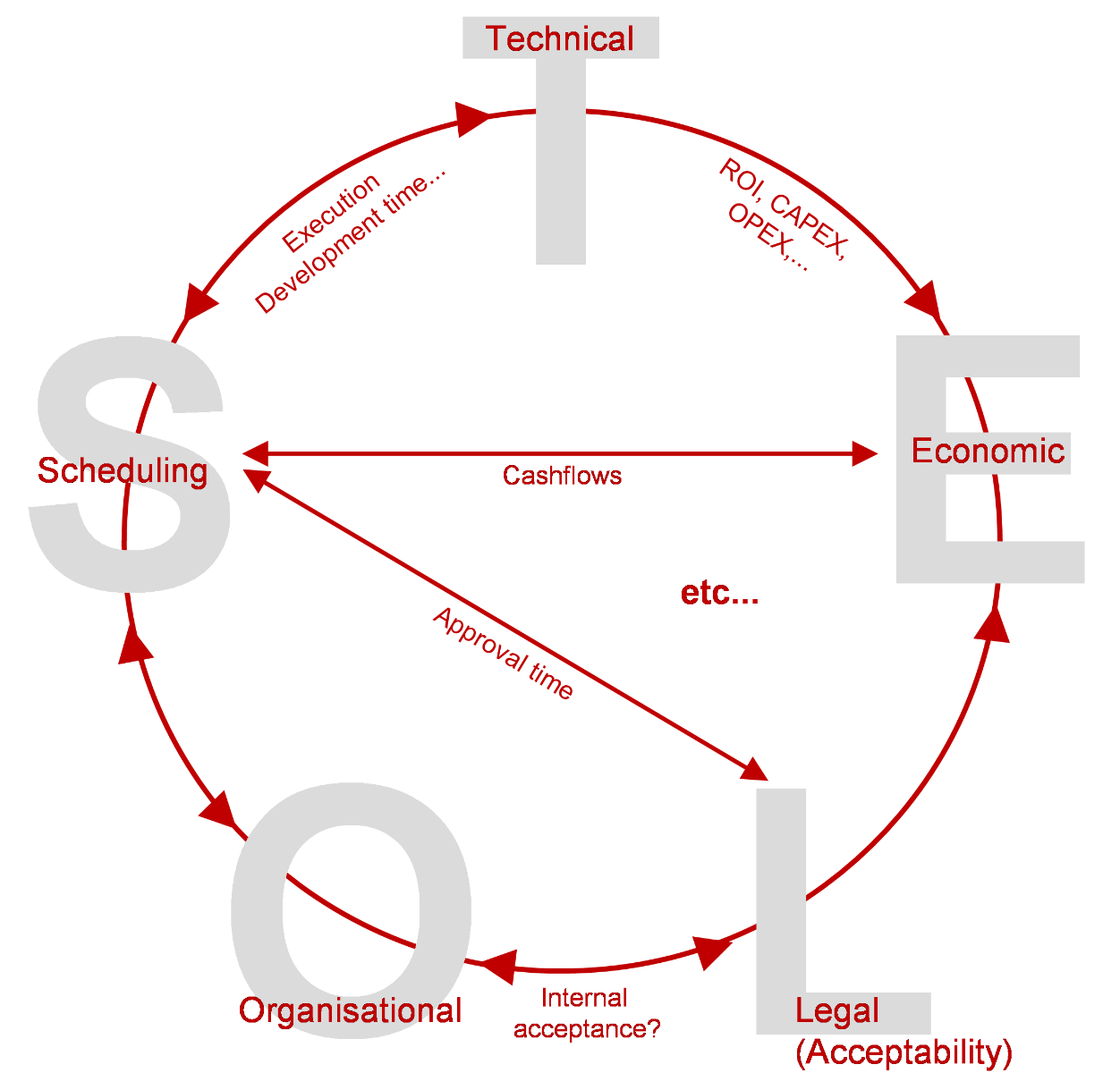8) Project feasibility
The project proposals identified in the previous step are checked for feasibility in step eight. Usually, engineering consultancies, technical service providers, etc. are contracted for this. The investigation usually includes a survey of the local conditions and an examination of the technical, economic and legal framework conditions. At this point, the support of tools can be of great help, e.g. by analysing possible district heating expansion areas with THERMOS, or using similar tools to examine the assumptions underlying the H&C arrangements for major development proposals.
The aim of the feasibility study is to create a decision basis whether a project has the potential to be successful (and therefore justifies further investment), should be redesigned or stopped. Therefore the study must be conducted in an objective and unbiased approach under the participation of all key stakeholders.
Structuring feasibility studies
The TELOS approach can be used to structure feasibility studies. Here, technical (T), economic (E), legal (L), operational (O) and scheduling (S) aspects are analysed in a structured way. The aim is to obtain a comprehensive picture of the project, also taking into account the risks. The following figure shows a simplified approach to structure questions using TELOS.
Inspiration for structuring project feasibility studies: the TELOS approach

Technical: Are resources and the technology needed available and accessible? Are there any technical preferences, constraints etc.? How about technical risks? ...
Economic: Can the project meet its financial goals (ROI,...) ? Are there additional sources of funding (e.g. public support schemes)? ...
Legal: Are there regulations in place which prevent/support the project’s success? Are the underlying regulations varying over time? Could citizens complain against the project? ...
Organisational / Operational: Are the right stakeholders involved in the project and agree with the project goals? Do all stakeholders know what to do and are they aware of their competencies and responsibilities? Are the involved stakeholders capable of dealing with the project or are external/additional experts required? ...
Scheduling: Are there any external/internal deadlines for the projects success? Are the stakeholders aware of the possible time constraints? ...
Source:
TELOS Approach https://www.scienceopen.com/hosted-document?doi=10.14293/S2199-1006.1.SOR-.PPT0ZRS.v1
Subscribe to our Newsletter

This project has received funding from the European Union’s Horizon 2020 research and innovation program under grant agreement No 101033706. The sole responsibility for the content of this website lies with the Act!onHeat project and does not necessarily reflect the opinion of the European Union.




